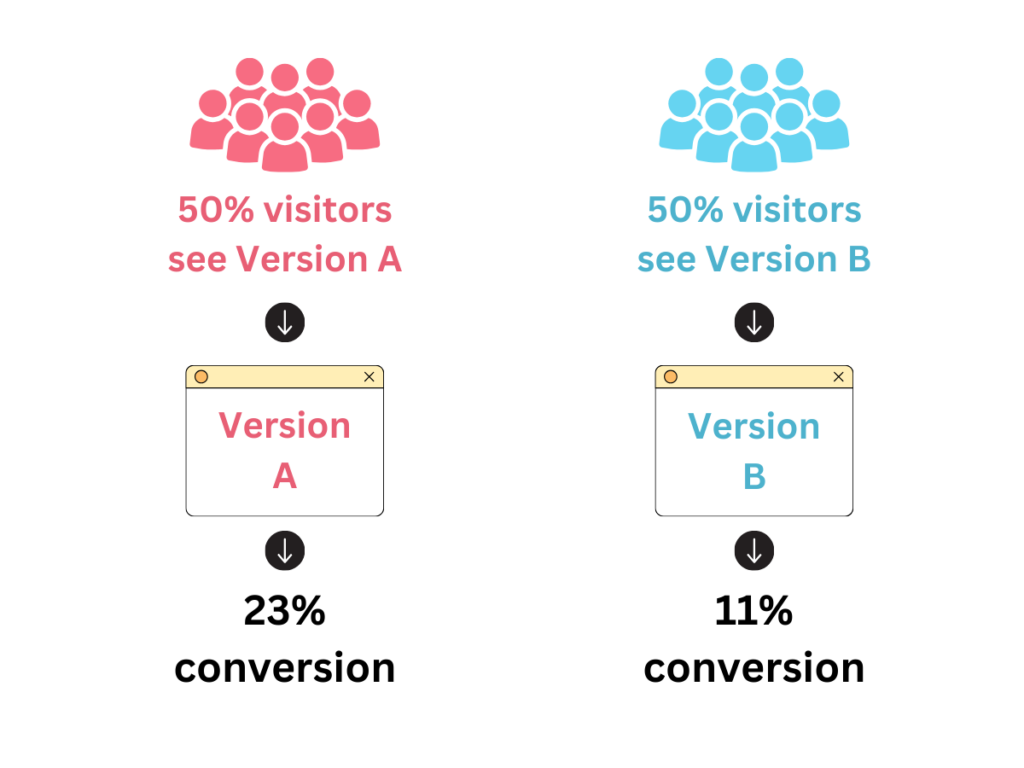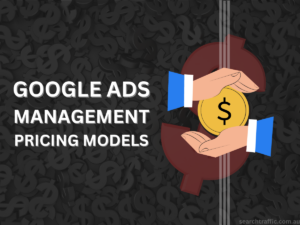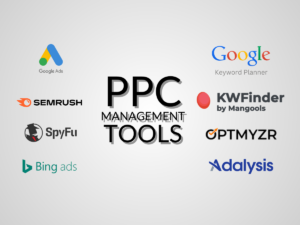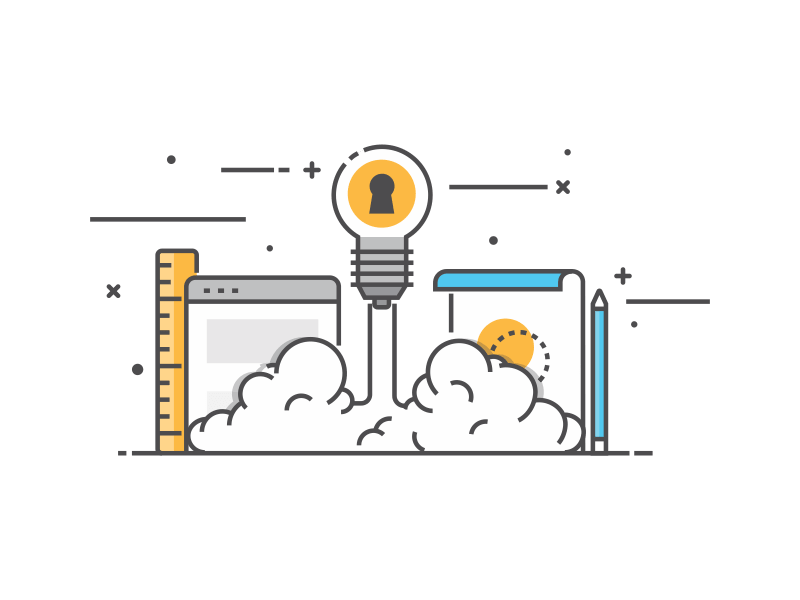Table of Contents
Marketing has evolved over the years, with businesses of all sizes making use of data to drive their marketing strategies.
Marketing analytics involves the use of data to measure and optimise marketing campaigns and ultimately drive business growth.
In today’s data-driven world, small businesses need to embrace marketing analytics to remain competitive. This post aims to provide an overview of marketing analytics, how it works, and how it can help small businesses grow.
What Is Marketing Analytics?
Marketing analytics is a powerful tool that empowers businesses to gather, measure, and analyse data to assess marketing performance.
By leveraging this process, companies gain a deeper understanding of their target audience, allowing them to craft tailored marketing messages that resonate with their customers’ needs.
Marketing analytics will help businesses to understand why some marketing campaigns work well, while others don’t. The insights generated from analytics help business owners make better marketing decisions, enhance customer experience, and drive business growth.
The Basics of Marketing Analytics
Marketing analytics draws insights from a variety of data sources, such as social media, email, website traffic, and customer data.
Analysing this data helps determine the effectiveness of marketing campaigns and measure metrics or key performance indicators (KPIs).
Metric/ KPI | Description |
Traffic | Refers to the number of people visiting your website or engaging with your marketing content. Crucial for understanding the reach and effectiveness of your marketing efforts. |
Conversion Rates | Measures the percentage of visitors who take a desired action (e.g., making a purchase, signing up for a newsletter, filling out a contact form). Helps assess the success of marketing efforts. |
Customer Lifetime Value (CLV) | Estimates the total amount a customer is likely to spend on your products or services over their relationship with your business. Aids in strategic decisions around customer acquisition and retention. |
Return on Investment (ROI) | Calculates the profitability of a marketing campaign by comparing the cost of running the campaign to the revenue it generates. Helps determine which campaigns are worth investing in. |
Businesses can leverage analytics tools like Google Analytics, HubSpot, and Hootsuite to collect and analyse these metrics.
Marketing Analytics Tools and How They Compare

There are a range of tools available to help businesses with marketing analytics, each with its unique features and benefits.
Some of the most popular tools include:
- Google Analytics: A free tool that provides in-depth website traffic data, including sources, demographics, and behaviour.
- HubSpot: An all-in-one marketing platform that offers analytics on website performance, email campaigns, social media engagement, and more.
- Hootsuite: A social media management tool that offers analytics on content performance, audience engagement, and more.
- SEM rush:- A comprehensive marketing analytics tool that offers insights on SEO, PPC, social media, and content marketing.
- Mailchimp: An email marketing tool that offers analytics on open rates, click-through rates, and subscriber activity.
These tools vary in price and features, so businesses need to assess their needs and budget before choosing the right one for them.
Using Marketing Analytics to Grow Your Small Business
Marketing analytics can be a powerful catalyst for the growth of small businesses. By leveraging the insights gained from analytics, these businesses can make informed decisions that lead to increased efficiency and profitability.
For instance, consider the case of a local boutique that used Google Analytics to track their website traffic and customer engagement. By analysing the data, they discovered that a significant portion of their traffic came from social media. This insight led them to focus more on their social media marketing efforts, resulting in a 30% increase in online sales over six months.
Key benefits of using marketing analytics for small businesses include:
- Better understanding of your target audience: With marketing analytics, you can gain valuable insights into your target audience’s demographics, interests, and behaviour. This information can be used to tailor your marketing efforts to meet their specific needs and preferences.
- Improving marketing strategies: By tracking KPIs like website traffic, conversion rates, and customer engagement, businesses can identify areas for improvement in their marketing strategies. Analytics provide invaluable data that helps businesses make data-driven decisions to optimise their campaigns.
- Enhancing customer experience: With marketing analytics, businesses can understand how customers interact with their brand and identify any pain points in the customer journey. This allows for improvements to be made to provide a better overall experience for customers.
- Identifying new opportunities: Marketing analytics can also help small businesses identify potential new markets or segments that they may not have considered before. By analysing data from different sources, businesses can uncover new opportunities for growth and expansion.
- Accurately calculate your ROI: With detailed insights into campaign performance and costs, businesses can determine the ROI of their marketing efforts and make informed decisions on where to allocate resources for maximum impact.
What are Some Popular Marketing Analytics Strategies?
There are different marketing analytics strategies, including A/B testing, customer segmentation, and predictive analytics.
A/B Testing

A/B testing, a widely used technique in marketing, involves running two variations of a campaign simultaneously to determine which one performs better.
By comparing the results of these variations, marketers gain valuable insights into customer preferences, allowing them to optimise their strategies and drive better business outcomes.
Customer Segmentation
Customer segmentation is a powerful strategy that allows businesses to divide their customers into distinct groups based on demographics, behaviour, and interests.
By doing so, businesses can then target these specific groups with tailored marketing messages, resulting in more effective and impactful communication. This approach not only boosts customer engagement but also maximises the chances of converting leads into loyal customers. Embracing customer segmentation is a proven way to optimise marketing efforts and drive business growth.
Predictive Analytics
Predictive analytics is a powerful approach that leverages data to anticipate future trends in the market, customer behaviour, and the effectiveness of marketing campaigns.
By analysing data patterns, identifying correlations, and applying statistical algorithms, businesses can gain valuable insights into potential outcomes and make informed decisions. This proactive strategy enables organisations to stay ahead of the curve, optimise their strategies, and achieve a competitive edge.
How to get Started with Marketing Analytics
Small business owners who are new to marketing analytics can start with Google Analytics, a free tool that provides insights into website traffic, user behaviour, and demographics.
Other analytics tools include HubSpot and Hootsuite, which offer more extensive features for managing social media, email campaigns, and lead generation.
Businesses can also hire marketing analytics experts or agencies if they need assistance implementing analytics strategies.
The Future of Marketing (AI and Machine Learning)

The future of marketing is being reshaped by the advancements in Artificial Intelligence (AI) and Machine Learning (ML). These technologies are not just complementary to marketing analytics; they are driving its evolution.
AI and ML enable more sophisticated data analysis, pattern recognition, and predictive modelling, enhancing the efficacy of marketing strategies.
AI and Machine Learning Applications in Marketing Analytics
AI algorithms are now used in customer segmentation, where they analyse vast datasets to identify nuanced customer groups based on behaviour, preferences, and purchasing patterns. This allows businesses to create highly personalised marketing campaigns that prove to be more effective.
Machine Learning, a subset of AI, plays a pivotal role in predictive analytics. By learning from historical data, ML models can forecast future customer behaviours, market trends, and campaign outcomes.
For example, Netflix uses ML to analyse viewing patterns and recommend personalised content to its users, significantly enhancing user engagement and retention.
AI-driven chatbots represent another practical application. These chatbots, powered by natural language processing, can engage with customers in real-time, providing personalised recommendations and support, thereby improving the customer experience and increasing conversion rates.
In email marketing, AI tools analyse user engagement data to determine the optimal time to send emails, increasing the chances of open and click-through rates.
As we move forward, the integration of AI and ML in marketing analytics will become more prevalent, offering small businesses unprecedented capabilities to understand their customers and make data-driven decisions. This technological synergy is not just a trend; it’s the future of effective marketing.
Conclusion
Knowing how to use marketing analytics is crucial for small businesses to remain competitive and grow in today’s fast-paced market.
With the right marketing insights, businesses can make informed marketing decisions, improve customer experience, and drive business growth.
The future of marketing is data-driven, and as such, small businesses need to ensure they make use of marketing analytics to gain an edge over competitors.
Not sure where to begin? Consider expert PPC and SEO support that’s right for your small business.






